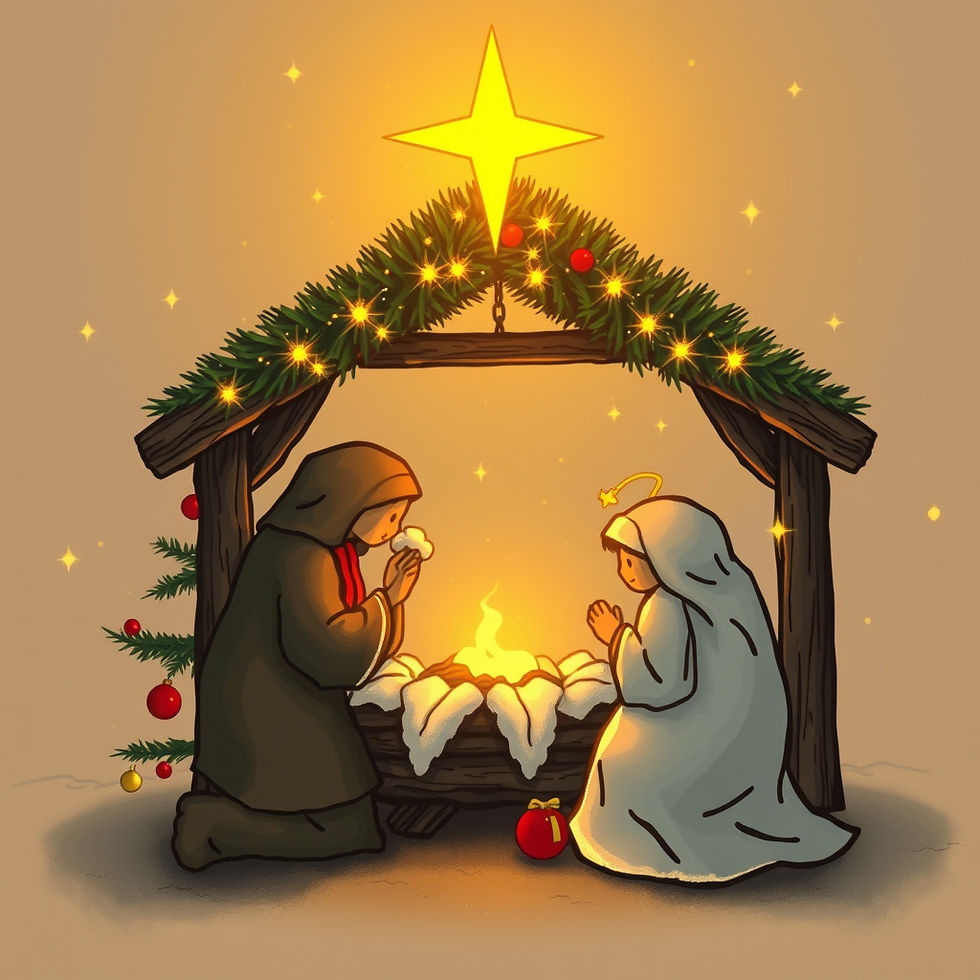Learn to give thanks even in times of trial
- Eldon Peterson
- Nov 27, 2014
- 3 min read
What is your favorite American holiday? Mine is Thanksgiving, the day that our nation has set aside to be thankful. At least that is the intent. In school we learned that the first “Thanksgiving” was celebrated by the Pilgrims after their first harvest in 1621. However, if we dig a bit deeper, we find that not only were there earlier observances of thanksgiving but that they celebrated something greater than their harvest.
On Dec. 4, 1619, when 38 English settlers arrived at Berkeley Hundred, they observed a “day of thanksgiving” to God. The Charter of Berkeley Hundred called for the people to continually remember what God had done for them, “We ordaine that the day of our ships arrival at the place assigned for plantacon in the land of Virginia shall be yearly and perpetually kept holy as a day of thanksgiving to Almighty God.”
It is interesting that the focus of the thanksgiving celebration in the Charter of Berkeley Hundred is quite similar to what President Lincoln said in his federal Proclamation of Thanksgiving on Oct. 3, 1863. Prior to this, each state had its own celebration. Lincoln believed that it would help unite the nation, torn apart by the Civil War, to annually stop and gave thanks to God together on the fourth Thursday of November.
If we asked, “What did they have to be thankful for?” Lincoln would have told us that thanksgiving comes not from circumstances but from the Lord. His proclamation declares that Thanksgiving Day is to be “a day of Thanksgiving and Praise to our beneficent Father who dwelleth in the Heavens.” It is difficult for us to realize how conditional our thankfulness is as we celebrate in the warmth and comfort of our homes. However, Lincoln’s call to give thanks came not at a time of comfort for the nation but one of great difficulty. Only when we learn to be thankful in difficult times can we know what true thankfulness looks like.
President Lincoln called the people to remember and not forget the hope that was theirs in the “ever watchful providence of Almighty God.” Only by remembering that the Lord is the source of the “bounties which are so constantly enjoyed” are we able to have hope for the future. If the Lord is not mindful of us in our suffering we have no hope, but knowing that the Lord “is pleased with you when you do what you know is right and patiently endure unfair treatment” (1 Peter 2:19) gives us hope.
Lincoln refers to the difficulties brought upon our nation by the Civil War as being a time of “unequaled magnitude and severity”. When we remember the hope that we possess in Christ then we are able to be thankful even in times of hardship. Thanksgiving then offers us the opportunity to remember that God is always with us.
President Lincoln called all the residents of the United States to join with one another in celebrating Thanksgiving on this single day in November. One day a year was to be set aside to remember the kindness that the Lord had shown on all. In all honesty, little of this remains in our current Thanksgiving celebrations. At its best, Thanksgiving for most Americans is a day centered around a meal that is shared with family and friends. At its worse, Thanksgiving is nothing more than the starting point of the Christmas holiday season. However, neither has at its core the singular purpose of giving God our thanks or praise in the midst of trials and difficulties.
I would suggest that Lincoln and the English settlers of 1619 had the right emphasis of what real thankfulness is like.When we face trials, sickness or loss, we may wonder, “What do I have to be thankful for!” However, once we lift our eyes from our circumstances and focus on the Lord, we will see how great our hope is.
So how big is your God? Are you able to be thankful even in the midst of trials and difficulties? We can only say yes when we realize that real hope, the hope that we need, comes not in prosperity but in the Lord. As you gather this Thanksgiving, consider how “God showed his great love for us by sending Christ to die for us while we were still sinners.” (Romans 5:8) Only when we see that we are greatly loved and truly blessed will we be able to give thanks regardless of our circumstances.




Comments